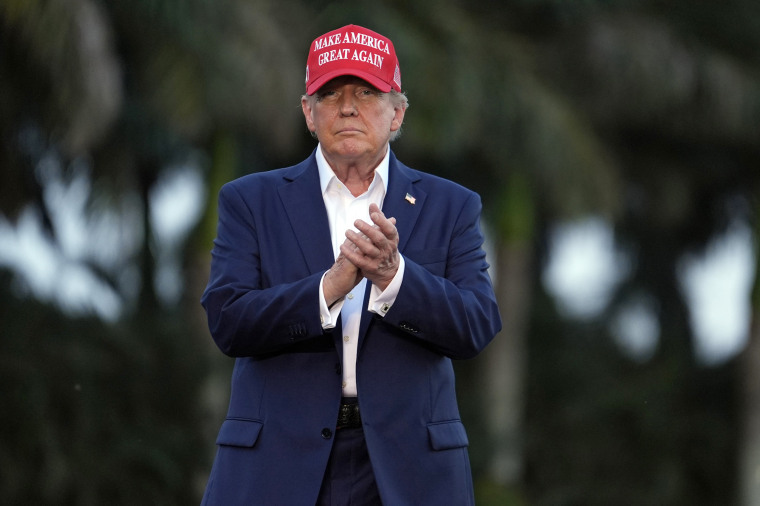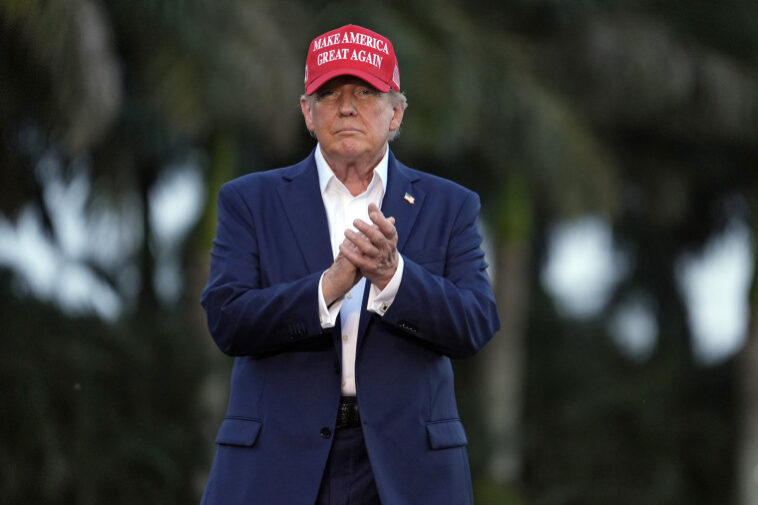
President Trump Asks Judge Juan Merchan to Dismiss Criminal Conviction and Indictment
Introduction
President Donald Trump’s defense attorneys are asking Judge Juan Merchan, who presides over his hush-money case, to dismiss the criminal conviction and the indictment following the recent Supreme Court ruling on presidential immunity. In response, the New York district attorney’s office has vehemently disagreed with Trump’s claims that the Supreme Court decision impacted their case. Trump’s defense attorneys have also accused the district attorney of unprecedented bias, in an attempt to throw out Trump’s criminal conviction and prevent another trial.
Trump’s Motion to Dismiss
Trump’s defense attorneys argue that in light of the Supreme Court’s recent ruling on presidential immunity, the jury’s verdicts must be vacated, and the indictment dismissed. However, dismissing Trump’s criminal conviction could potentially trigger a new trial, while throwing out the indictment would prevent prosecutors from charging Trump again. The defense has also made it clear that “no President of the United States has ever been treated as unfairly and unlawfully as District Attorney Bragg has acted towards President Trump in connection with the biased investigation, extraordinarily delayed charging decision, and baseless prosecution that give rise to this motion.”
Background of the Case
Manhattan district attorney, Cyrus Vance Jr., successfully charged Trump with falsification of business records in a scheme to interfere with the 2016 election. After a six-week long trial at Manhattan criminal court, during which Trump had to be present in the courtroom every day, the jury found him guilty on all 34 felony counts, making him the first former president in the history of America to be convicted of a crime. It is essential to note that Trump allegedly repaid Cohen in 2017 when he was residing in the White House.
The Supreme Court Ruling on Presidential Immunity
The historic Supreme Court ruling granted some immunity protections to presidents and former presidents from prosecution for actions relating to the core powers of their office, and at least a presumption that they have immunity for their official acts. However, it does not define what exactly constitutes an official act, leaving that to lower courts. Trump’s attorneys criticized the district attorney for rushing the case and proceeding on a “highly expedited basis,” instead of waiting until the Supreme Court released its decision. Trump’s trial began on April 15, while the Supreme Court heard arguments on the immunity matter on April 25.
Challenges for the Defense
The biggest challenge for the defense is the question of what constitutes an official act. Trump’s attorneys argue that the district attorney violated the Presidential immunity doctrine and the Supremacy Clause by relying on evidence relating to Trump’s official acts in 2017 and 2018. They further argued that much of the “unconstitutional official-acts evidence concerned actions taken pursuant to ‘core’ Executive power for which ‘absolute’ immunity applies.”
Conclusion
In a bid to have the case thrown out, Trump’s defense team is utilizing every legal avenue at their disposal, accusing the district attorney of unprecedented bias and challenging the constitutionality of the evidence used in the case. Whatever the outcome of the motions filed, this case will undoubtedly set legal precedents regarding presidential immunity and establish the limits of executive power under the law.
Originally Post From https://www.nysun.com/article/trump-demands-judge-dismiss-his-unfair-hush-money-conviction-after-supreme-court-ruling-defense-slams-alvin-bragg-for-hubris
Read more about this topic at
US Supreme Court rules Trump has broad immunity from …
Judge rejects Trump’s request to delay hush-money trial

